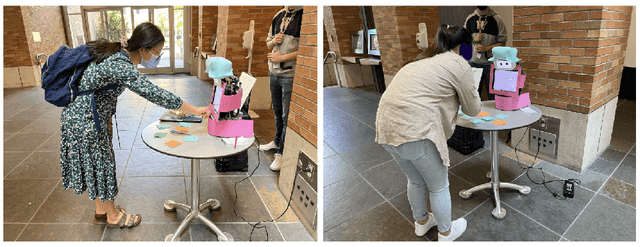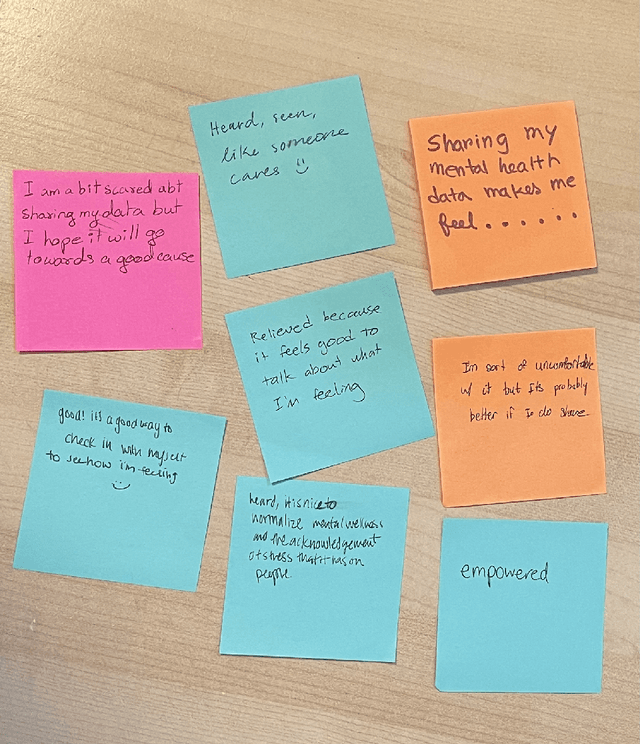Share with Me: A Study on a Social Robot Collecting Mental Health Data
Paper and Code
Aug 08, 2022

Social robots have been used to assist with mental well-being in various ways such as to help children with autism improve on their social skills and executive functioning such as joint attention and bodily awareness. They are also used to help older adults by reducing feelings of isolation and loneliness, as well as supporting mental well-being of teens and children. However, existing work in this sphere has only shown support for mental health through social robots by responding interactively to human activity to help them learn relevant skills. We hypothesize that humans can also get help from social robots in mental well-being by releasing or sharing their mental health data with the social robots. In this paper, we present a human-robot interaction (HRI) study to evaluate this hypothesis. During the five-day study, a total of fifty-five (n=55) participants shared their in-the-moment mood and stress levels with a social robot. We saw a majority of positive results indicating it is worth conducting future work in this direction, and the potential of social robots to largely support mental well-being.
 Add to Chrome
Add to Chrome Add to Firefox
Add to Firefox Add to Edge
Add to Edge